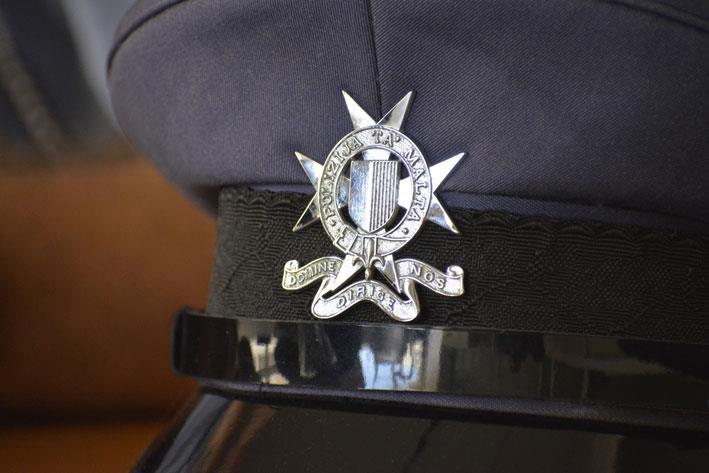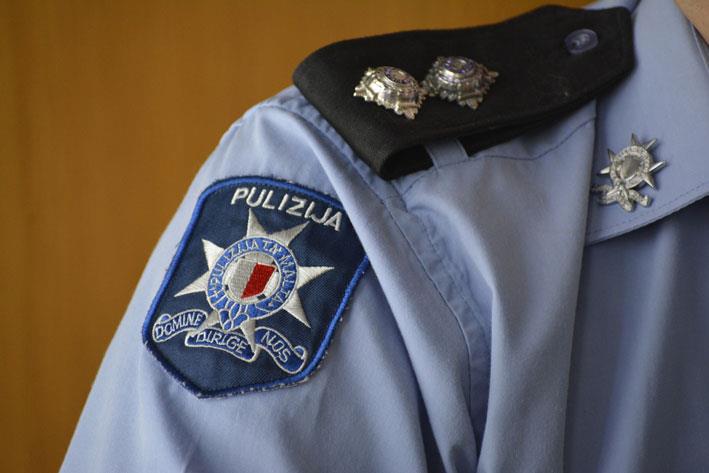Home Affairs Minister Byron Camilleri said that the Police Force must investigate every allegation they believe should be investigated.
He was asked about public concern and the perception that the Police were not taking action when it came to certain high-profile individuals, and what he is doing to deal with the situation.
“From the first day I took office, I said that I believe the Police must investigate every allegation they think they should investigate. As a politician, I will not interfere in what investigations they conduct or in any other investigations,” he said.
Asked whether he believes there should be an independent investigation into how the Police Force has been run over the past few years, the Minister said that the Police carried out its work in the manner it felt was required.
“A new Police Commissioner will have the chance to look at every aspect. Even the fact that it is a public call means that anyone can apply, and not just those who are presently part of the Police Force. So he or she will need to see what has been done and what has not, and where he or she feels that something was not done the right way, change it.”
The Minister also spoke about the PN’s proposal for a two-thirds Parliamentary Majority requirement for the selection of a new Police Commissioner, arguing that such a proposal was irresponsible. He asked: “What will happen if, in the future, the Members of Parliament do not end up agreeing? What will we do: stay with a deadlock and leave the country without a Police Commissioner?”
Minister Camilleri also referred to plans to revise and update the Code of Ethics for Police Officers, which was drafted back in 2005.
“Back then, I doubt I had a Facebook profile or a mobile phone in my pocket. The country was completely different. With a proper Code of Ethics there will be clear guidelines and a method by which the Police Force itself can proceed in terms of discipline against those who breach it.”
Full interview below

The government announced major changes in the selection process for Police Commissioners. One proposal made by the PN was for there to be a two-thirds Parliamentary majority. The government had argued that the Venice Commission had not made such a suggestion, but why not go for the proposal regardless?
We had two options when we received the former Police Commissioner’s resignation: either to do what every previous government had done and have the Prime Minister make the appointment – as the present law states – or change.
We chose the second option as we believed that there was a need for a better method, despite the fact that, in a number of other EU countries, the Police Commissioner is appointed by the Executive.
We felt that the point of departure should be what the Venice Commission said, and we looked at their comments not only on how a Police Commissioner is appointed but also how the Commissioner is to be removed.
The Venice Commission said three things: it said that there needs to be a public call, that there should be the option of a veto for the Prime Minister or the President, and that the police should not continue having the power to prosecute.
The last point has been tackled and a law has been passed.
For us, the essential point to start with was the public call. When one looks at how a Police Commissioner is removed, the Police Act states that it is the Public Service Commission (PSC) that can remove a Commissioner. We decided that, since the PSC handles this process, and that it is composed of a few of the people on whom there is agreement between the Prime Minister and the Leader of the Opposition, and since this is an independent organ that emerges from the Constitution, it would be the PSC to issue the public call.

On the veto, we removed it and added that the PSC would propose two candidates who will go before the Cabinet. The Cabinet will then select one of them.
We then added another process – for reasons of transparency and accountability – that the Venice Commission did not mention. The nominee would go before the Public Appointments Committee in Parliament, where he or she would be grilled. It would be a public process, the media would be able to scrutinise it and every citizen could approach MPs and suggest questions to be put to the nominee. In this way we will have greater certainty that the process will be more accountable and transparent.
The Opposition does not know what it wants. In two-and-a-half years, it has changed its position three times on the procedure for appointing a Police Commissioner.
First, they had said that there should be a two-thirds majority but that a simple majority would have to do, if this did not work.
Last December they proposed that there should be a Committee of experts who report on the appointment and then, within a month, they again changed their position and said that there should only be a two-thirds majority.
This last proposal is the most irresponsible. What if there is no agreement in Parliament over the nominee? What will we do: stay with a deadlock and leave the country without a Police Commissioner? This is why we did not agree with their proposal.
There are other arguments. If the Opposition is involved through the two-thirds majority then democratically, you could have an Opposition that cannot criticise the Police Commissioner as it would have been involved in his or her appointment. That is not healthy, democratically.
This is the same Opposition that cannot even agree on who the Party Leader should be. Some of the MPs do not even respect the result of a leadership election, or the re-confirmation of the Leader.

The Prime Minister has mentioned possible reforms in the Police Force. What kind of reforms do you have in mind and what will be the focus of them?
The biggest reform I want in the police force is a change in mentality: that is the most essential thing. A restructuring process in the force was already underway, and when I met the people leading those changes I made it clear that I wanted to see the process concluded within a few months, so that we could then start their implementation. I want to see more governing policies in the police force – and that does not mean that we would make the force rigid, like a robot that cannot operate as it feels the need to. The clearer the policies are, the more people will know their rights and responsibilities.
There are other things which need to change. As an example, the Code of Ethics for the Police Force dates back to 2005, and back then I doubt I had a Facebook profile or a mobile phone in my pocket. Times were different then.
With a proper Code of Ethics, there will be clear guidelines and a method on how to deal with breaches of that Code. I cannot give you specifics on what the reforms will be because the process has not yet been concluded, but I will want to come before the public in a few months’ time and say what we plan to do.

There is a strong perception that the Police have failed to act against certain high-profile individuals, primarily politicians, which resulted in many protests. What are you doing to deal with this situation and how do you intend to regain the trust of people in the Force?
From the first day I took office I said that I believed the police must investigate every allegation they think they should investigate. As a politician I will not interfere in any investigations.
My job is that, when they come to me and say that they need more resources, I will ensure that their request is met as it is meant to be, and that the resources are made available.
Resources could mean human resources, technological resources, premises.... the way the police work. I can assure you that I will ensure that these requests are met, but I will certainly not intervene in any investigations. That is not my job, it is not my remit and it would be very wrong if politicians interfered in investigations.
On the other hand, I want the Force to have a good reputation. The 2019 Eurobarometer saw this stand at 65 per cent and I want to see it rise further. We will take a number of measures to see the public’s trust in the police increase.

What measures do you have in mind?
I cannot say as it will be part of the reform, but we will not have a problem in making changes. My wish is that whoever is appointed as the next Police Commissioner will have the will to make changes. It cannot be someone who wants to retain the status quo – I don’t think that would be acceptable.
Changes are needed. This does not mean that everything is bad, but neither is everything good. I am convinced that even the police themselves would be proud with their work if they see the force moving forward, solving more crimes and conducting more investigations…
Regarding the perception, one must also understand that the police need to have a strong case in order to bring a prosecution. The media has a duty to report but media reports alone are not always enough for a prosecution. Officers want to go to the courts well-prepared and with a strong case so that the outcome will reflect the work carried out on the case.
There have been allegations that the police either ignored or did not act appropriately on the FIAU reports. What is your comment on this?
The police have to investigate everything that they feel needs to be investigated and I will not be the one to stop them. For sure, it is not within my competence to do so and it is not my style. What is of interest to me is that the police are allowed to work, properly.

Is there a need for an independent investigation into how the Police Force has been run over the past few years?
The Police Force has carried out its work as it felt it needed to do. A new Police Commissioner will have the chance to look at what has been done and what has not. Even the fact that it is a public call means that everyone can apply, and not just people who presently form part of the Force.
The new Commissioner would have to take stock of the situation and make changes where it is felt they are necessary.
I will not comment on – or ask about – investigations because that is not my role. I will ask whether they have enough resources to operate, and will only intervene if there are serious deficiencies in the Force that are hindering its operations.
So it will be up to the new Commissioner as to whether or not he wants to investigate a matter?
Yes.

There have been calls for better training for police officers when it comes to dealing with victims of domestic violence victims. Do you agree that there is a need for more training and do the police have enough resources?
Officers receive training every fortnight in groups of 25 each time, which includes how they are to conduct themselves with people who report domestic violence and other crimes. There is also a clear memo from the Police Force on how one has to act and behave with victims of domestic violence and people who want to report such a crime.
More training will be provided. The police are currently working on a training simulator for domestic violence and other crimes. The unit tasked with dealing with this form of crime is made up of dedicated people who always want to do more to combat domestic violence.
In the eventuality that someone does not act as he or she is supposed to, I will be the first to demand disciplinary action, because it is not acceptable for someone not to be assisted, or to be sent home to fix the problems with their partner. That is not acceptable, and the police receive training in order not to do that. Unfortunately, there will always be that one person who tries to avoid work, and I invite anyone who experiences this to report that officer. There is zero tolerance with those who do not do their job.

Middleman Melvin Theuma claims that former Deputy Police Commissioner Silvio Valletta was leaking information from the investigation into the murder of Daphne Caruana Galizia – which Valletta denies. What is your comment on this, and what precautions should the police take to ensure that no such thing ever happens?
Regarding this particular case, I find the situation unacceptable and I am angered by the allegations. I will not go into whether or not they are true but I get angry as a responsible politician, and the police must investigate everything they believe needs investigating.
As for what should be done to avoid the possibility of similar situations in the future, there should be a clearer Code of Ethics that provides for modern times, clear written policies and a strong method of discipline so that the Force shows that there is a zero tolerance policy regarding all forms of abuse.

Do you have any plans for reforms within the AFM?
I have always admired the AFM and have spoke a lot about migration – an issue that takes up a lot of time as Minister of Home Affairs. They had come to us in my first few days and told us what was happening and what investment was required.
I do not think there is a need for change in the AFM in the same way as it is needed in the Police Force. There is need for more investment to protect our country and for us to be better prepared. Among other things, the AFM’s largest ever patrol boat – which is costing €50 million – will be in Malta by the end of the year.
Last year, the Ombudsman recommended that the Home Affairs Ministry reviews and revises the selection and promotion procedures in the AFM. Will this be done?
As a government, we went on record saying that we did not agree with everything that the Ombudsman said, but this does not mean that we cannot learn from it. So in the future, when similar decisions need to be taken, we will see what the Ombudsman says and then the necessary decisions can be taken.